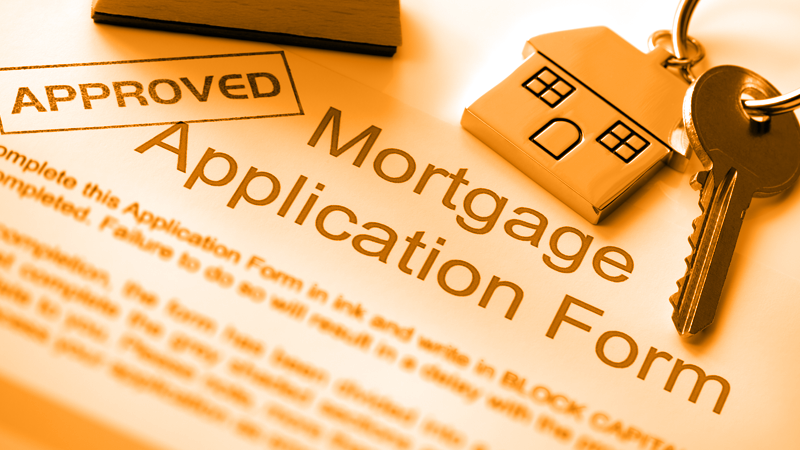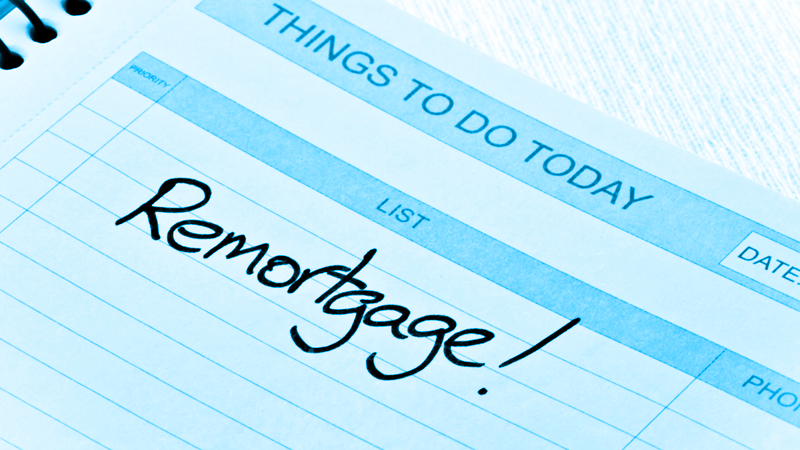How long does mortgage approval take? Buying a home can be a lengthy process. There are lots of viewings, mountains of paperwork, and many checks to go through before you get to the exchanging of keys and contracts.
Find out how long it takes to get a mortgage with our guide which covers everything you need to know about the mortgage application process.
If you need to borrow money, there is no moving forward with a house purchase until you have a mortgage approved by a lender.
How long it takes to get a mortgage can depend on a number of factors, including the likes of your credit rating, the results of a mortgage valuation survey, and your income and affordability assessment.
How Long Does a Mortgage Application Take To Be Approved?
The average time for a mortgage to be approved in the UK is typically between 2 to 6 weeks.
In some cases, it can be approved as fast as 24 hours but this is typically very rare.
How Long Does a Mortgage Application Take?
So, how long does it take to get a mortgage?
There are several things that can impact how long it takes to get a mortgage – the stages involved in a mortgage application are outlined below:
Mortgage Application Process Timeline:
Mortgage in Principle
The first step of the process is usually getting a mortgage in principle.
This is simply a statement from a lender, stating that they can lend you a certain amount to purchase a home ‘in principle’.
It is a really quick process if you have all the necessary documents ready (ID i.e. passport, 3-6 months bank statements, and proof of income) and have picked out a mortgage deal.
A lender will ask you for some basic information, such as your income, current financial status, etc., and will check your credit history, where they will verify you have the required credit score for a mortgage.
This is not a guarantee that a lender will definitely agree to a mortgage in the future, but it useful to have to show estate agents., as it will demonstrate that you are serious about buying.
Your estate agent will be able to show you homes that could be purchased with the loan agreed in principle.
Furthermore, an agreement in principle may speed up your application process once you have found a property you want to make an offer on, especially if you are going with the same lender.
Recommended guides:
- Remortgage for home improvements.
- How long does mortgage approval take?
- Remortgage with bad credit.
- Remortgage for help to buy.
- How to sell a house.
The Mortgage Application
The next step in arranging a mortgage is the application.
Filling in your mortgage application is not a lengthy process, it should only take a few hours at the most, as long as you have your finances in order and the necessary documents and information at hand.
To determine the amount you are eligible to borrow and your reliability to pay it back, lenders will need evidence of the following:
- Details of the property you have put an offer on, as well as information on the seller’s estate agent and proof of your deposit.
- Valid ID, such as a passport, to prove your identity and proof of your current address, such as a utility bill.
- Three months bank statements, which can be used to show what your current outgoings are, including the likes of other credit commitments, childcare, utilities, leisure time, holidays, money to savings, pension contributions, etc.
- Up to six months of payslips to provide proof of your income, including any bonuses or overtime. If you are self-employed, your accounts and a few years of tax returns will be required to determine what monthly payments you can afford.
A lender will review all this information and carry out a credit check.
If they need no further information or clarification from you, they will arrange a valuation of the property you are hoping to buy, to determine if it is priced correctly and suitable for a mortgage.
There are different types of mortgages, and make sure you are aware of the fees involved in buying a mortgage.
Usually, the valuation carried out by your lender will be a ‘Standard Valuation’, which is the minimum check required by law, before a mortgage can be approved.
An independent surveyor will carry out an inspection of the property, taking note of any major issues or defects that could affect the value property.
They will also investigate what similar homes in the area have sold for, to see how your desired property compares.
They will then complete a report known as a Standard Valuation, which will be reviewed by your lender.
If you want a more detailed survey – perhaps you have been burned before – there are a couple of more thorough evaluations you can carry out before moving forward with the mortgage process. They are:
- Full Buildings Survey – Used to be known as a Structural Survey, a Full Buildings Survey involves a comprehensive inspection of the condition of the property, including any structural abnormalities or defects, any necessary repairs, and maintenance requirements. This is useful for period properties, larger homes, or non-traditional builds.
- A Homebuyer’s Report – Includes more detailed information than a Standard Valuation, including information on any current or potential future issues with the property and maintenance and/or repair costs.
If your lender is satisfied with the valuation and all other checks, your mortgage application should be approved and your offer will become official.
Sometimes, the surveyor may determine that the sale price or your offer is higher than the value of the property.
This is actually quite common and could be due to a number of issues, such a market conditions, structural defects or just a seller overestimating the value of their property.
These downgraded valuations are not just there for the protection of the lender, but also for your protection, to prevent you from paying more for a property than it is worth, as this may put you into negative equity.
However, there are still options open to you to secure a mortgage in these instances.
You can contact the seller with the results of the valuation to discuss a potential reduction in the selling price.
If this is fruitless, and you really want the property you could increase your deposit amount to make up the shortfall.
Related reading?
- Repayments on £80,000 mortgage.
- Interest-only mortgages.
- Zero deposit mortgage.
- The first mortgage explained.
- What stops you getting a mortgage in the UK?
How long does it take to get a valuation done?
After you have submitted your mortgage application, your lender will instruct the surveyor to carry out a valuation, the aim of which is to ensure the property is worth the amount you want to pay for it.
The surveyor will contact the estate agent in control of the property and request access to carry out a thorough inspection and survey of the property so that they can check it is structurally sound and has no obvious issues.
This typically takes a day since most surveyors will create the report on the same day as the inspection and send it straight to the mortgage lender’s underwriter.
Once the mortgage lender’s underwriter has received a copy of your completed survey, they will check to see if the valuation makes sense and that there are no issues with the property highlighted in the report.
From start to finish, the entire valuation process takes around 2 weeks to complete on average.
How long does it take between a mortgage valuation and an offer?
After the valuation has been received from the surveyor, the lender’s underwriter will have all the required information to come to a final decision and will then be able to provide a mortgage offer.
At the point, the mortgage lender is willing to make an offer you will have it sent to you through the mail. Your conveyancing solicitor will also be mailed the offer.
It can take anywhere from 2 to 20 days to receive an offer.
How long does it take to exchange contracts?
Once your solicitor has received the offer from your lender, you should be able to exchange contracts with them in around 2 months.
During the mortgage application period, your solicitor will have been executing the conveyancing process.
This involves tasks such as applying to your local authority, for a market search, which takes around 1 month on average, although can take longer depending on how busy your local authority property and the land department are.
Other tasks your solicitor will have been doing include communicating with the seller’s solicitors and asking relevant and important questions.
Once all of the above tasks have been taken care of, your solicitor will book a meeting with you for a pre-exchange meeting, where you can ask questions and raise any issues.
If you are happy, they will then arrange a convenient time for a final competition date.
How long does completion take?
The competition date – the day you finally get to start life in your new home.
Once the exchange of contracts has taken place, your appointed solicitor will organise the mortgage to be finalised so that you now officially own your home.
The period from the exchange of contracts to the completion date depends on both the buyer and owner.
Once you have both agreed to a date, it takes 1 week from this point since this is the amount of time it will take to receive the funds once your solicitor has notified your lender.
Typically it takes around a month from the exchange of contracts to the completion.
How Long Does a Mortgage Offer Last?
A very common question we receive is “How long does a mortgage offer last?“, generally speaking, It can take between 2 and 6 weeks to get a mortgage offer.
However, if your application is a little more complicated, such as if you are looking to buy a non-standard build, or have bad credit, it may take longer.
Once your mortgage application has been approved, the offer is usually valid for 6 months. However, some lenders may have a completion deadline for their offer.
After this deadline has passed, you may be able to still use the same lender for a mortgage, but your eligibility is likely to be re-assessed as circumstances may change.
Therefore, you may have to start the application process again and your new offer may be altered depending on your current circumstances.
Is it possible to speed up the mortgage application process?
A mortgage broker can really help with the mortgage process as they will be familiar with all of the latest deals on the market, and the ones you are most likely to be accepted for.
This will save you a considerable amount of time as you won’t have to research the deals that are best suited to your circumstances.
Your broker will also help you fill in your application forms and let you know what documentation you need to complete the process quickly.
Furthermore, they will handle the submitting of the application and liaising with your solicitor to get the whole process moving much quicker.
How long does it take to get a mortgage if I’ve got a poor credit history?
Getting a mortgage with poor credit is trickier. Most mainstream lenders are reluctant to loan to those with bad credit as their poor credit history doesn’t provide the assurance they need that the loan will be paid back.
However, this doesn’t mean that those with bad credit are completely ineligible for a mortgage.
There are a number of niche mortgage providers that specialise in securing mortgages for those with no credit history, or serious blemishes on their credit record.
These lenders will consider the severity of the credit issue, the duration of the credit issues, the age of the problem, along with the standard eligibility criteria for a mortgage.
It is likely that you will need to put down a larger deposit on a mortgage if you have bad credit as a bigger deposit will offset some of the risks of loaning to someone with bad credit.
You will also need documentation to prove that you can afford the monthly payments including bank statements and payslips.
Furthermore, your outstanding loans, along with any other outgoings will be assessed and may affect the amount that you can borrow.
If you have bad credit and are interested in buying a home, get in touch with an experienced mortgage broker who has access to the whole market.
They will be able to access a wider range of mortgage deals including those from speciality lenders that fit in with your requirements.
This will make the process of applying for a mortgage go much quicker than having to research individual lenders yourself, which is even more important for first time buyers.
Types of First Time Buyer Mortgages
For a more in-depth look into some common types of first time buyer mortgages, check out our following guides:
Key Takeaways on Your Mortgage Application Timeline
- A mortgage in principle may help to make the mortgage application process go a little smoother, by showing you and lenders what you can afford.
- A mortgage application requires valid ID & address verification, your estate agent and solicitor’s details, proof of income and outgoings and proof of deposit.
- A valuation of the property will be carried out to determine it is priced correctly and is suitable for a mortgage.
- Generally speaking, it usually takes two to six weeks to get a mortgage approved.
- The application process can be accelerated by going through a mortgage broker who can find you the best deals that suit your circumstances.
- A mortgage offer is usually valid for 6 months.
Call us today on 01925 906 210 or complete our quick and easy First Time Buyer Mortgage Application.



